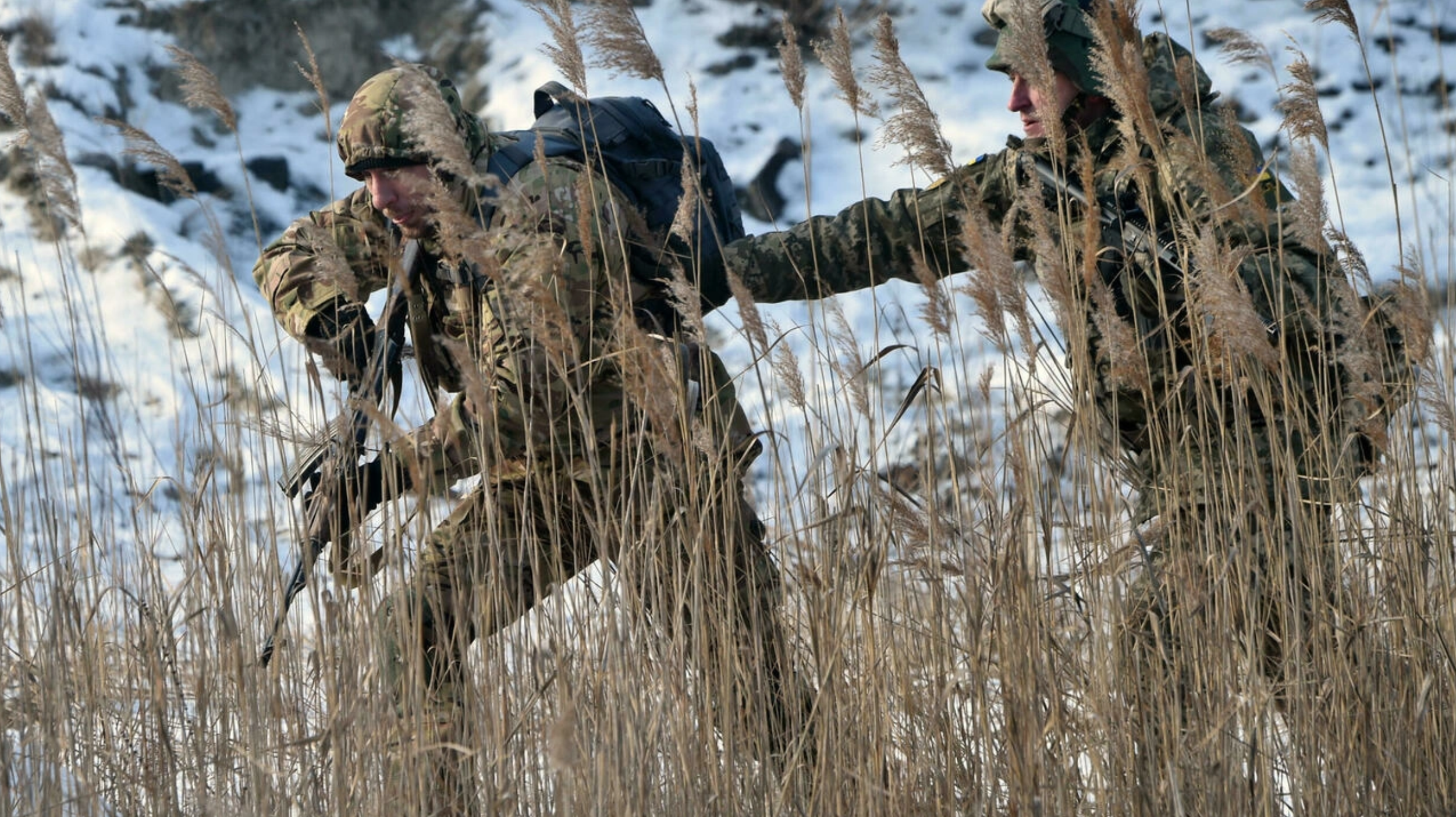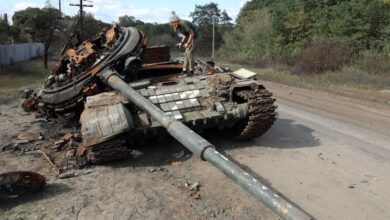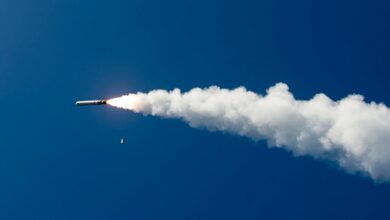What Is Driving Turkey’s Increasing Military Cooperation With Ukraine?
KYIV, UKRAINE – As the world looks wearily at the Russian troop build-up on the Ukrainian border, the Turkish government has been quietly ramping up its delivery of weapons and equipment to Kyiv in recent months, at the cost of angering Moscow.
But for Recep Tayyip Erdoğan’s increasingly isolated government, the rewards might well be worth the risk.
Procuring Vital Military Technologies
Besides obvious economic benefits, the ongoing technology transfers with Ukraine could bolster Turkey’s own military capabilities, at a time when its defense industry is being crippled by US sanctions.
Just last month, US President Joe Biden signed a bill allowing the American government to track and assess the national security implications of Turkey’s expanding drone program.
According to Yörük Işık, an Istanbul-based geopolitical analyst who runs the Bosphorus Observer, a consultancy group analyzing maritime activity on the Turkish Straits, the Turkish government is now desperately trying to offset what he calls the “political blunder of the century:” getting kicked out of the F-35 joint strike fighter program after buying the Russian-built S-400 air defense system.

“Ever since, Turkey has been interested in building a domestic fighter plane, and it’s lacking a key technology to do so: the engine,” Işık told The Defense Post.
As such, Istanbul sees Ukrainian engine manufacturer Motor Sich and design bureau Ivchenko-Progress as great potential investment targets. “I don’t know yet what kind of deal will be hatched, but there will certainly be one,” Işık believes.
Having strained its relations with its NATO partners, the country is now hedging its bets on increased military-technical cooperation with Ukraine. In October last year, Motor Sich agreed to provide Turkish defense company Baykar with 30 turboprop engines to use in its Akinci strike drones.
Improving a Precarious Economic Situation
In the midst of a worsening economic crisis, the Turkish government is also eager to inject some much-needed liquidity into its coffers, and it has found in Ukraine an enthusiastic business partner.
Indeed, while some NATO members have proceeded with caution when selling weapons to the embattled country — with Germany outright blocking Ukraine’s purchase of defensive weapons through the NATO Support and Procurement Agency — Turkey has shown no such qualms.
Already in 2019, the Ukrainian government signed a $69 million deal with Turkey to purchase Bayraktar drones. A little less than a year later, the Ukrainian defense minister and the CEO of Baykar — that produces the Bayraktar — signed a memorandum to establish a joint training and maintenance center in Ukraine.
In recent months, Kyiv and Ankara have also been discussing the joint production of corvette ships and AN-178 military transport aircraft, as well as turbine engines, including those for military aviation.
Yet this increasing military-technical cooperation has proven a difficult balancing act. While it criticized Moscow’s 2014 annexation of Crimea and voiced support for Ukraine’s territorial integrity, Ankara still remains militarily and economically tied to Russia.
When a Turkish-built drone struck pro-Russian separatist positions last October in Donbas, the news infuriated Moscow. Soon after, a Kremlin spokesman warned that Turkey’s ongoing arms sales to Ukraine threatened to destabilize the region.
З метою примушення ворога до припинення вогню у районі проведення #ООС було вперше застосовано “#Байрактар” – Генеральний штаб #ЗСУhttps://t.co/8snvyiYB8x
— Defense of Ukraine (@DefenceU) October 26, 2021
Countering Increased Russian Presence in the Black Sea
Despite fears of Russian retaliation, a strengthened military partnership with Ukraine remains an alluring prospect for Turkey as, according to Işık, the country is above all weary of the growing Russian presence in the Black Sea region.
“The Turkish government is worried that Russia might have the upper hand in the region, and I believe we’ll see them moving to counteract this dominance with new missiles, native technologies, new ships, new corvettes, new submarines,” he said.
Besides Russia, Turkey is the only country to possess submarines in the Black Sea, and it plans to significantly increase its naval warfare capacities with the introduction of a new class of submarines in the coming years.
However, the Turkish government will do its utmost to avoid any kind of direct confrontation.

“Turkey occupies an uneasy position, having strong ties to both parties,” explained Dimitar Bechev to The Defense Post. Bechev is adjunct professor at the University of Sofia, where he teaches European Studies and International Relations. “Ankara will help Ukraine but will try to avoid antagonizing Moscow.”
Indeed, while Turkey recently became the number one foreign investor in Ukraine, with Turkish investments in the country totaling $3.6 billion in 2020, Russia remains one of Turkey’s most important trading partners and its main supplier of natural gas.
According to Işık, Turkey’s military build-up in the Black Sea area stems in part from economic concerns. Because of its current financial crisis, the country wants the trade routes to remain open. “Turkey wants to trade with everyone, as a middleman, and to remain open to everyone,” he said.
Bolstering Diminished NATO Credentials
Besides the aforementioned benefits, Bechev believes that there might be more at play in Turkey’s decision to increase its military cooperation with Ukraine.
“To a degree, the Turkish government is seeking to reinvigorate its ties with NATO and the US by supporting Ukraine,” he said. “However, it is a bilateral relationship not embedded in NATO, and I doubt that the US will cut Erdogan much slack because of Ukraine.
By signaling its support for Ukraine in the face of Russian aggression, Turkey is also hoping to ease its international isolation and normalize relations with its neighbors.
An implication echoed in an October 2021 article by Dmytro Kuleba, in which the Ukrainian foreign minister called on NATO to “begin viewing the Ukrainian-Turkish partnership as a valuable supplementary force that can help provide security and stability in the region.”
An unsurprising turn of events, according to Işık.
“At the end of the day, Ukraine and Turkey have a significant economic and military relation, and despite all the rhetoric, Turkey will always choose NATO’s side,” he said. “Like any other European country, it understands that it cannot defend itself without NATO.”
However, the analyst believes that we are currently only seeing the beginning of Ukraine-Turkish military relations. “They will only get deeper and more complicated,” he said. “This will obviously make Russia unhappy.”












